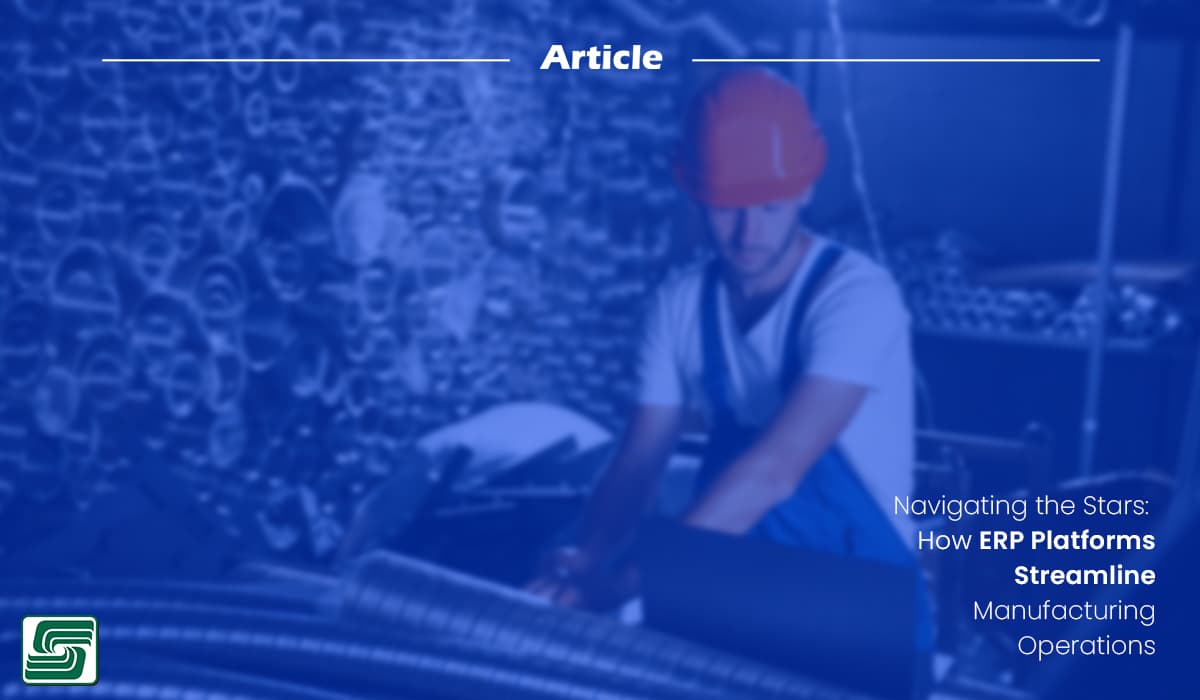
Like the starship captain, manufacturers must oversee complex systems working together to run their business smoothly. An Enterprise Resource Planning (ERP) system serves as the bridge between departments: the central hub integrating real-time data so each division works in tandem. With a bird's-eye view of operations, manufacturers can make informed decisions to optimize performance.
What is an ERP?
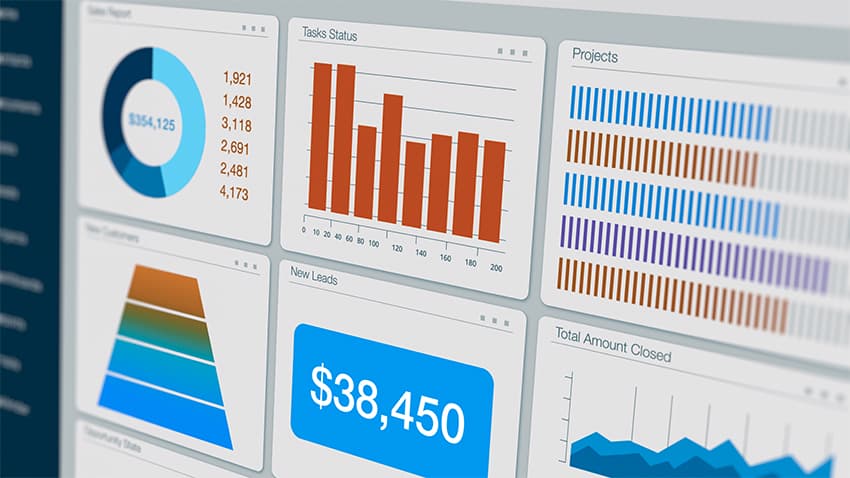 Enterprise Resource Planning (ERP) refers to a robust software system used by organizations to streamline and integrate their key business functions.
Enterprise Resource Planning (ERP) refers to a robust software system used by organizations to streamline and integrate their key business functions.
An ERP system acts as the central nervous system of a company, managing various aspects such as finance, supply chain, manufacturing, human resources, sales, and customer relationship management. It allows different departments to access and share data in real-time, providing a comprehensive view of operations.
An ERP system is a cohesive platform that collects and stores data from different departments in a centralized database. This centralization eliminates data silos that often exist when various systems are used independently in different departments.
By integrating these disparate functions into a single unified solution, an ERP enhances communication and collaboration across the organization. The functionalities of an ERP are multi-faceted.
From financial management encompassing accounts payable/receivable and general ledger functionalities to inventory control, ensuring efficient supply chain operations; from production planning and scheduling to human resource management, including payroll administration and employee records; from sales order processing to customer relationship management (CRM) enabling effective sales tracking - an ERP provides comprehensive tools for managing every aspect of a manufacturing business.
With its ability to:
- Automate routine tasks
- Provide real-time analytics for decision-making purposes
- Support strategic planning initiatives
An ERP system empowers organizations with:
- Increased operational efficiency
- Improved productivity levels
- Reduced costs through effective resource allocation
- Enhanced customer satisfaction because of streamlined processes
- Accurate demand forecasting leads to optimized inventory levels
All are contributing to gaining a competitive edge in the manufacturing industry.
ERP's Evolution in the Manufacturing Sector
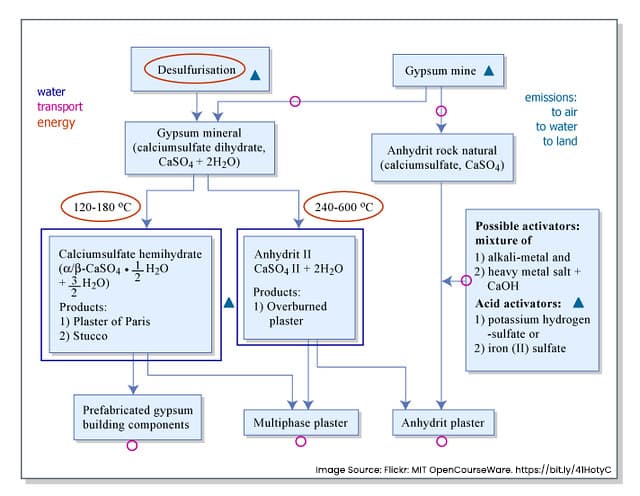 In recent decades, the role of Enterprise Resource Planning platforms in the manufacturing sector has evolved significantly.
In recent decades, the role of Enterprise Resource Planning platforms in the manufacturing sector has evolved significantly.
Originally designed to streamline core business processes, such as finance and human resources, ERPs have become indispensable tools for manufacturers to manage their operations efficiently.
This evolution can be attributed to several key factors.
Technological advancements have played a crucial role in shaping the evolution of ERP platforms in manufacturing. Traditional ERP systems were primarily on-premise solutions that required substantial hardware investments and complex installations.
However, with the advent of cloud computing and Software-as-a-Service (SaaS) models, ERP platforms have become more accessible and scalable for manufacturers of all sizes.
The cloud-based approach allows companies to access real-time data from anywhere, enabling better collaboration between different departments and improving overall operational efficiency.
Increased globalization has significantly impacted the manufacturing sector's need for advanced ERP capabilities.
As companies expand their operations across multiple regions or continents, they face complex supply chains, diverse regulatory environments, and varying customer demands.
Modern ERP systems handle these challenges by providing comprehensive functionalities like global inventory management, multi-language support, real-time supply chain visibility, and compliance monitoring.
This evolution enables manufacturers to effectively navigate the complexities associated with global expansion while maintaining control over their operations.
 The integration capabilities of modern ERP platforms have evolved considerably. In traditional manufacturing setups, different departments often used disparate software systems that operated independently, without seamless communication.
The integration capabilities of modern ERP platforms have evolved considerably. In traditional manufacturing setups, different departments often used disparate software systems that operated independently, without seamless communication.
This lack of integration resulted in data silos and inefficient processes that hindered productivity and decision-making.
However, with today's advanced ERPs incorporating modules such as:
- Production planning and control systems (PPC)
- Material requirements planning (MRP)
- Quality management systems (QMS)
- Customer relationship management (CRM)
- Procurement modules
Manufacturers achieve end-to-end integration and a 360-degree view of their operations in a unified system.
This integration empowers manufacturers to:
- Make informed decisions
- Optimize resource allocation
- Improve production planning
- Enhance overall customer satisfaction
The evolution of ERP platforms in the manufacturing sector has been driven by:
- Technological advancements
- Increased globalization
- Improved integration capabilities
The shift towards cloud-based solutions has made ERPs more accessible and scalable for manufacturers of all sizes. Modern ERP systems address the complexities associated with global operations by providing comprehensive functionalities tailored to meet diverse regulatory environments and customer demands.
The integration capabilities of advanced ERPs allow manufacturers to break down data silos and achieve seamless communication between different departments, leading to enhanced decision-making and overall operational efficiency. As technology continues to evolve rapidly, it is expected that ERP platforms will continue to play a pivotal role in transforming the manufacturing landscape.
Becoming Cloud-Based
In recent years, one of the significant trends in the manufacturing industry has been the transition of ERP platforms to cloud-based solutions.
 This shift from traditional on-premise systems to cloud-based ERP platforms has provided manufacturers multiple benefits and growth opportunities.
This shift from traditional on-premise systems to cloud-based ERP platforms has provided manufacturers multiple benefits and growth opportunities.
Cloud-based ERP offers a scalable and flexible infrastructure that enables manufacturers to adapt to changing market conditions and expand their operations seamlessly.
One key advantage of cloud-based ERP platforms is their ability to centralize data storage and accessibility. With a cloud-based system, manufacturers store all their critical information in a centralized location accessible from anywhere with an internet connection.
This connection eliminates the need for physical servers or complicated networking setups, saving time and resources. This centralization ensures that all departments within a manufacturing organization have access to real-time data, facilitating efficient collaboration and decision-making.
Cloud-based ERP solutions offer enhanced mobility for manufacturing companies. As employees are no longer tied to a specific physical location or limited by their office computer systems, they can access essential data and perform necessary tasks remotely using any internet-enabled device, such as laptops, tablets, or smartphones.
This flexibility increases workforce productivity, as employees can work while traveling or from home if necessary.
It also empowers field technicians to access real-time information on:
- Inventory levels
- Customer orders
- Production schedules
 Cloud-based ERP platforms also provide manufacturers with improved security measures compared to traditional systems. These platforms invest heavily in robust security protocols and technologies, such as:
Cloud-based ERP platforms also provide manufacturers with improved security measures compared to traditional systems. These platforms invest heavily in robust security protocols and technologies, such as:
- Encryption algorithms
- Multi-factor authentication methods
By placing data in dedicated data centers with advanced security measures and employing skilled IT professionals who maintain these secure environments 24/7, cloud-based ERP providers offer manufacturers peace of mind, knowing their sensitive business information is protected against potential cyber threats.
The shift towards cloud-based ERP platforms has revolutionized the manufacturing industry by providing manufacturers with:
- Unparalleled scalability
- Flexibility
- Mobility
- Security
By centralizing data storage, enabling remote accessibility, and ensuring robust security measures, cloud-based ERP solutions empower manufacturing companies to:
- Streamline their operations
- Make informed decisions in real-time
As technology advances, more manufacturers are expected to adopt cloud-based ERP platforms to stay competitive in an ever-evolving industry.
Advantages
One of the primary advantages of implementing an ERP platform in the manufacturing sector is improved operational efficiency. Manufacturers streamline processes, optimize resource allocation, and automate routine tasks with an ERP system.
An ERP system:
- Reduces lead times
- Increases production capacity
- Enhances productivity
By integrating various departments and functions within a single system, an ERP platform allows for real-time visibility of the entire manufacturing process.
This information always enables better coordination between different teams and minimizes bottlenecks, ensuring smooth operations across the supply chain.
Another significant advantage of ERP platforms in manufacturing is enhanced inventory management. With an effective ERP system, manufacturers gain better control over their inventory levels by accurately tracking:
- Raw Materials
- Work-in-Progress (WIP)
- Finished goods
Manufacturers avoid stockouts by accessing real-time data on stock levels and demand forecasts while minimizing excess inventory. Reducing inventory using these methods reduces carrying costs and helps prevent production delays because of:
- Material shortages
- Overstocking
ERP platforms enable data-driven decision-making by providing comprehensive business intelligence tools.
Manufacturers extract valuable insights from their data through advanced analytics and reporting capabilities offered by ERP systems. They analyze:
- Key performance indicators (KPIs)
- Product quality metrics
- Production bottlenecks or inefficiencies
- Overall business performance in real-time
These insights allow manufacturers to make informed decisions promptly and proactively address any issues that may arise during manufacturing.
Implementing an ERP platform brings several advantages to the manufacturing sector, including:
- Improved operational efficiency through streamlined processes and automation of tasks
- Better inventory management by accurately tracking materials throughout the supply chain while avoiding stockouts or excess inventory
- Valuable insight into business operations from robust analytical tools, allowing data-driven decisions for optimizing performance
Cost and Sustainability Insights
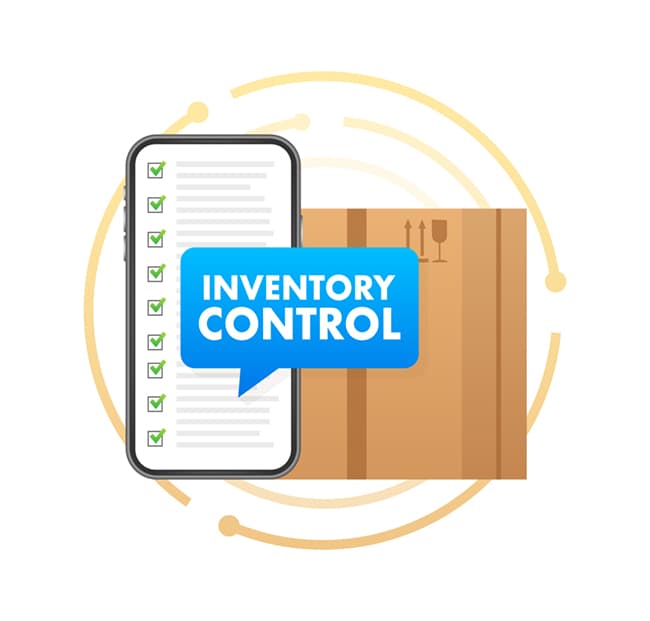 In manufacturing, like most industries, cost is a critical factor that makes or breaks a company's success. Implementing an ERP platform in manufacturing operations leads to significant cost savings and improved sustainability.
In manufacturing, like most industries, cost is a critical factor that makes or breaks a company's success. Implementing an ERP platform in manufacturing operations leads to significant cost savings and improved sustainability.
One primary way ERP systems contribute to cost reduction is by streamlining processes and eliminating inefficiencies.
Manufacturers minimize:
- Manual errors
- Labor costs
- Optimize resource allocation
By centralizing data and automating tasks, ERP platforms provide real-time visibility of various aspects of manufacturing operations, allowing companies to make informed decisions regarding cost management. For instance, by tracking inventory levels and analyzing demand patterns, manufacturers avoid:
- Overstocking
- Under-stocking raw materials
This level of inventory tracking ensures efficient use of resources while preventing unnecessary expenses associated with excess inventory or lost sales because of stockouts.
Another way ERP systems help cut costs and promote sustainability is through an improved supply chain management tool. With an integrated ERP system, manufacturers collaborate seamlessly with suppliers, optimizing procurement processes and ensuring timely materials delivery. This seamless collaboration reduces the following:
- Lead times
- Transportation costs
- The carbon footprint associated with excessive freight movements
Regarding sustainability insights, ERP platforms enable manufacturers to gather accurate data on energy consumption throughout their production facilities.
With this information, companies can identify areas where energy usage is:
- Excessive
- Inefficiently distributed
By implementing energy-saving measures like equipment upgrades or process modifications based on these insights, manufacturers significantly reduce their carbon emissions while achieving substantial cost savings in the long run.
Overall, ERP platforms provide comprehensive insights on costs and support sustainable practices throughout the manufacturing process, boost profitability while aligning businesses with environmental goals.
Future ERP Versions
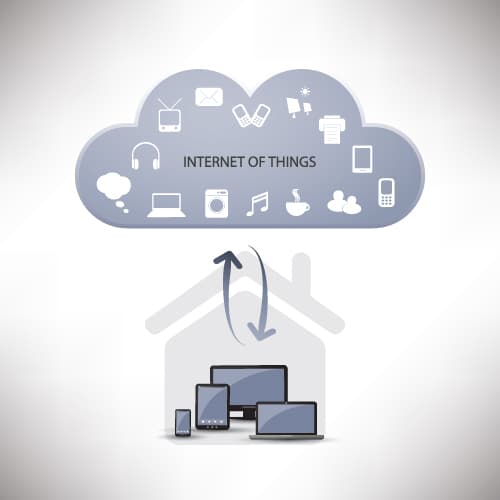 Future ERP Versions As technology continues to grow at an unprecedented pace, the future of ERP platforms in manufacturing holds great promise.
Future ERP Versions As technology continues to grow at an unprecedented pace, the future of ERP platforms in manufacturing holds great promise.
With advancements in artificial intelligence (AI), machine learning (ML), and the Internet of Things (IoT), ERP systems will become more intelligent, adaptive, and interconnected than ever before. One exciting development for future ERP versions is the integration of AI.
Artificial intelligence has already significantly impacted various industries, and its potential within ERP platforms is immense. Intelligent algorithms analyze vast amounts of data from different sources, such as real-time production or supply chain information, to generate valuable insights and predictions.
This capability enables manufacturers to:
- Make proactive decisions based on accurate forecasts
- Optimize resource allocation
- Streamline operations
- Even automate certain processes
AI enhances the user experience by enabling intuitive interfaces that learn from user behavior and adapt accordingly.
Another aspect that will shape future ERP versions is machine learning. By leveraging ML algorithms within the system, manufacturers benefit from self-learning capabilities that continuously improve performance.
For example, an advanced ERP could automatically:
- Identify patterns or anomalies in production data
- Suggest optimizations to enhance efficiency
- Detect potential issues before they occur
Machine learning algorithms analyze historical data and accurately predict:
- Demand forecasting
- Inventory management trends
Integrating IoT into ERP platforms will also contribute significantly to their evolution in the manufacturing sector.
Real-time data collection becomes seamless with IoT sensors embedded throughout:
- Production facilities
- Supply chains
These sensors gather information on equipment performance metrics as:
- Temperature variations
- Energy consumption levels
- Product quality measurements
By integrating this real-time data directly into the ERP system's analytical capabilities, manufacturers gain deeper visibility into their operations' nuances and take immediate action when needed.
Future versions of ERP systems in manufacturing will see remarkable advancements driven by the following:
- AI integration
- Machine learning capabilities
- IoT connectivity
This convergence of technologies will enable manufacturers to harness the power of data in unprecedented ways, leading to optimized processes, enhanced decision-making, and improved overall efficiency.
The potential benefits are immense, promising a future where ERP platforms become indispensable tools for manufacturing enterprises striving to remain competitive in an increasingly complex global marketplace.
In Sum
Implementing a robust ERP platform allows manufacturers to boldly optimize operations where no business has operated before. With real-time data as their guide, enterprises maximize efficiency even as competition speeds up. ERP systems integrate and illuminate end-to-end processes so manufacturers can push production to its limits.
Like a starship captain overseeing complex systems in unison, ERP platforms empower strategic decision-making to propel business growth through the cosmos.
Engage!